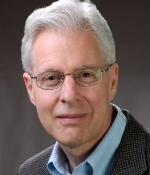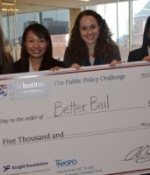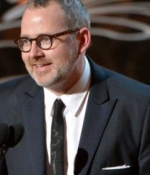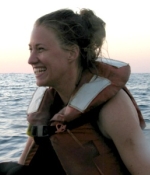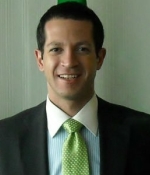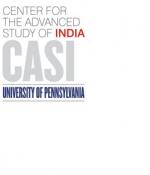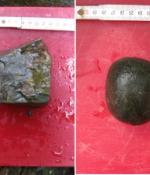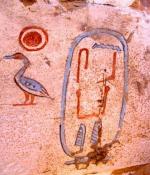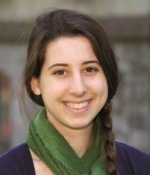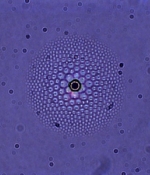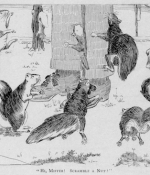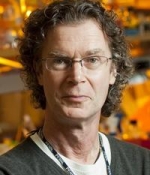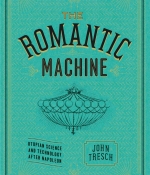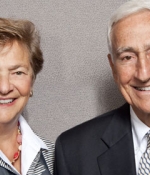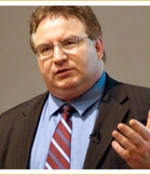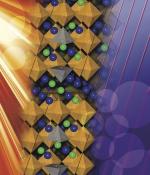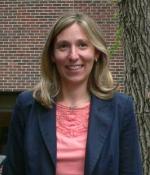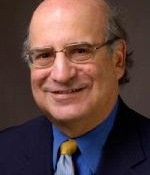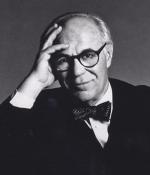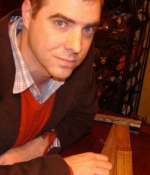2014
Penn Study Finds Social Ties Influence Awards Given by Peers, Not Critics
When it comes to winning Oscars and other awards to gain recognition and success in Hollywood, whom you know matters just as much as who is judging, according to a new University of Pennsylvania collaborative study lead by Professor of Sociology Paul D. Allison.Film awards generally fall into two categories: those given by peers actively engaged in making movies and those given by critics who review movies for newspapers, magazines, or other media outlets.
Sarah Tishkoff Links Ability to Digest Milk to Development of Pastoralism
Babies are born with the ability to digest lactose, the sugar found in milk, but most humans lose this ability after infancy because of declining levels of the lactose-digesting enzyme lactase. People who do maintain high levels of lactase reap the nutritive benefits of milk, offering a potential evolutionary advantage to lactase persistence, or what is commonly known as lactose tolerance.
Students Win Penn Public Policy Challenge With Proposed Tweak to Philadelphia Bail Payment System
An innovative proposal for the Philadelphia County prison system won this year’s Fels Institute of Government’s Penn Public Policy Challenge. A team of graduate students created the project, which advocates for the adoption of an online bail payment system.
Alumnus Wins Academy Award
Morgan Neville, C’89, won the 2014 Academy Award for Best Documentary for 20 Feet from Stardom, a film he directed and produced. The documentary gives a behind-the-scenes look at the careers of background singers for major acts.
Penn Team Discovers How Muscle-Controlling Neurons Know When They Make Mistakes
The brain orchestrates precise control over the body’s muscles through neurons known as Purkinje cells. When those movements go wrong, the body provides feedback from the senses through another type of neuron called climbing fibers. These work in close concert with Purkinje cells to fine-tune motor control. A team of researchers from the University of Pennsylvania and Princeton University has now begun to unravel the mysteries of how this feedback system works.
Eleanor Meyerhoff Katz Leaves a Family History of Support for Jewish Scholarship
Eleanor Meyerhoff Katz, who passed away February 20, had a lifelong connection to the history of Jewish studies at Penn. Her father, Joseph Meyerhoff, was a supporter of Dropsie College, which later became the University’s Center for Judaic Studies. Eleanor and her husband, Herbert D. Katz, W’51, were critical to raising the endowment to ensure the center’s future and to supporting Jewish studies throughout the University.
Senior Wins Gates Cambridge Scholarship
University of Pennsylvania senior Sonya Davey has been awarded a 2014 Gates Cambridge Scholarship to pursue a master’s degree in social anthropology at the University of Cambridge in the United Kingdom. She is among 40 American students awarded Gates Cambridge scholarships this year and is the 24th Gates Cambridge Scholar from Penn since the program began in 2001.
Sweeney Awarded Sloan Fellowship
Alison Sweeney, Assistant Professor of Physics and Astronomy, is one of three University of Pennsylvania faculty members among this year’s Sloan Fellowship recipients. Since 1955, the Alfred P. Sloan Foundation has granted yearly fellowships to early-career scientists and scholars whose achievements and potential identify them as the next generation of scientific leaders.
Horowitz Spends Year at Pentagon
Associate Professor of Political Science Michael C. Horowitz spent 2013 at the Department of Defense, working as a government insider on national security issues he had previously studied as an academic outsider. Horowitz, whose research generally focuses on technological military innovation, worked at the Pentagon on a Council on Foreign Relations International Affairs Fellowship.
New Fellowship Fund Will Support Recent Penn Graduate to Do Research in India
The Center for the Advanced Study of India (CASI) has announced the launch of a new post-baccalaureate fellowship program that will provide funding for a recent graduate of the University of Pennsylvania to pursue independent research in India.
Geophysicist's Finding May Tell Us Much About Rivers - Maybe Even on Mars
For centuries, geologists have recognized that the rocks that line riverbeds tend to be smaller and rounder further downstream, but they have not agreed on a reason for this pattern. Abrasion causes rocks to grind down and become rounder as they are transported down the river. Does this grinding reduce the size of rocks significantly, or is it that smaller rocks are simply more easily transported downstream?
Three College Students Receive Thouron Awards to Study in U.K.
Three College of Arts and Sciences students have received Thouron Awards to pursue graduate studies in the United Kingdom. The scholarship recipients are:• Sonya Davey of Gaithersburg, Md., majoring in health and societies, South Asian studies, and biology, is applying to the University of Oxford for a master’s degree in medical anthropology.
Josef Wegner and Team Unearth Forgotten Egyptian Pharaoh
A team of Penn archaeologists led by Josef Wegner, Associate Professor in the Department of Near Eastern Languages and Civilizations and Associate Curator in the Penn Museum’s Egyptian Section, has found the tomb of an unknown king in the city of Abydos. After excavating a series of chambers constructed of mud-brick—usually a sign of a common person’s tomb—they encountered a burial chamber lined with limestone.
Thomas Sugrue Elected President of Social Science History Association
Thomas J. Sugrue, David Boies Professor of History and Director of the Penn Social Science and Policy Forum, has been elected president of the Social Science History Association. It is the leading international association in the field. He will deliver his presidential address at the 2014 SSHA conference in Toronto on the theme “Inequalities: Politics, Policy, and the Past.”
Congratulations to Penn Arts and Sciences Dean’s Scholars
The School of Arts and Sciences has named 20 students from the College of Arts & Sciences, the College of Liberal and Professional Studies, and the Graduate Division as 2014 Dean’s Scholars. This honor is presented annually to SAS students who exhibit exceptional academic performance and intellectual promise. The 2014 Dean’s Scholars will be formally recognized as part of the Levin Family Dean’s Forum on February 6.
Two Members of Penn Arts and Sciences Community Nominated for Grammys
Two members of the Penn Arts and Sciences community were nominated for Grammy awards this year.Tony Peebles, C'03, plays saxophone in the 19-piece band Pacific Mambo Orchestra. Their album, PMO, won the award for Best Tropical Latin Album. Peebles was also Performance Coordinator for the Department of Music before moving to Oakland, California.
Penn Researchers Develop New Type of Liquid Crystal
Liquid crystals combine the optical properties of crystalline solids with the flow properties of liquids—characteristics that come together to enable the displays found in most computer monitors, televisions, and smartphones.
Penn Senior Wins Churchill Scholarship
Sarah Foster, C’14, has been awarded a Winston Churchill Scholarship, a merit-based prize for American college students who are outstanding in engineering, mathematics, and physical and biological sciences. The scholarship will support her studies at the University of Cambridge. Foster is one of 14 U.S. students awarded Churchill Scholarships this year.
Three From Penn Arts and Sciences Named 2014 Penn Fellows
Penn Provost Vincent Price and Vice Provost for Faculty Anita Allen are pleased to announce the appointment of the sixth cohort of Penn Fellows.The Penn Fellows program, begun in 2009, provides leadership development to select mid-career faculty members at Penn. It includes opportunities to build cross-campus alliances, meet distinguished academic leaders, think strategically about universities and university governance, and consult with Penn’s senior administrators.
Penn Biologists Develop New Method for Studying RNA
Scientists at the University of Pennsylvania and colleagues have teamed up to offer a new method for elucidating RNA regulation. Since RNA is now believed to play a major role in determining whether and how DNA is turned into a protein product, the scientists have provided a means of efficiently obtaining an entire “footprint” of interactions between RNA and the proteins that bind to RNA molecules.
Interdisciplinary Team Creates Way to Capture RNA From Living Cells
A multidisciplinary team from Penn has published in Nature Methods a first-of-its-kind way to isolate RNA from live cells in their natural tissue microenvironment without damaging nearby cells. This allows the researchers to analyze how cell-to-cell chemical connections influence individual cell function and overall protein production.
2013
Team Led By Randall Kamien Advances Nanotechnology Through Liquid Crystal Construction
A team of material scientists, chemical engineers, and physicists from the University of Pennsylvania has made another advance in its effort to use liquid crystals as a medium for assembling structures.
Penn Team Makes Inroads Into Reducing Toxicity Associated With Lou Gehrig’s Disease
In a new study published in Nature Genetics, University of Pennsylvania researchers and colleagues have made inroads into the mechanism by which amyotrophic lateral sclerosis (ALS), better known as Lou Gehrig’s disease, acts. Working with a powerful fruit fly model of the disease, they found a way of reducing disease toxicity that slows the dysfunction of neurons, while showing that a parallel mechanism can reduce toxicity in mammalian cells.
Etienne Benson Writes History of American Urban Squirrel
Though many people believe squirrels have existed in urban landscapes since Europeans arrived in the U.S., their presence is actually the result of intentional introductions. In his paper, “The Urbanization of the Eastern Gray Squirrel in the United States,” Assistant Professor of History and Sociology of Science Etienne Benson examines how the now-ubiquitous squirrel found a home American cities, and how its presence there altered people’s conceptions of nature and community.
Chemistry’s Fakhraai Wins NSF CAREER Award
Assistant Professor of Chemistry Zahra Fakhraai has received the National Science Foundation's Faculty Early Career Development (CAREER) award.
Team Led by Wei Guo Identifies New Mechanism of Cancer Spread
A new study by Penn scientists has identified key steps that trigger the disintegration of cellular regulation that causes cancer. Their discovery—that a protein called Exo70 has a split personality, with one form keeping cells under tight control and another that promotes cell movement, contributing to the ability of tumors to invade distant parts of the body—points to new possibilities for diagnosing cancer metastasis.
Michael Kahana Leads Team That Finds Memories Are ‘Geotagged’
A team of neuroscientists from the University of Pennsylvania, Drexel University, and Freiburg University has used a video game to discover that particular brain cells encode spatial information to form “geotags” for specific memories. The geotags are activated immediately before those memories are recalled, demonstrating the way in which spatial information is incorporated into memories. It is the first direct neural evidence of the phenomenon.
Faculty Opinion: Filibuster Reform's Impact
The changes the U.S. Senate made to the filibuster rules on November 21, 2013 are the types of parliamentary tactics that make legislative scholars excited to go to work each day. The term “filibuster” refers to the various tools available to legislators to prevent bills from being considered by the legislature. While many Americans associate the filibuster with the 24-hour speech of Jimmy Stewart’s character Jefferson Smith in the film Mr.
Penn Researchers Show Bitter Taste Sensitivity Was an Evolutionary Advantage
Sarah Tishkoff, Penn Integrates Knowledge Professor in the Department of Biology and Penn Medicine’s Department of Genetics, is senior author of a new study that provides evidence of the significance of bitter taste perception. The study suggests that a genetic mutation making certain people sensitive to bitter compounds appears to have been advantageous, in terms of immune response and metabolism, for certain human populations in Africa.
Biologist Rea Honored by AAAS
Biologist Philip A. Rea has been named a Fellow of the American Association for the Advancement of Science (AAAS) for his fundamental discoveries on the membrane transport and detoxification of xenobiotics and his distinguished accomplishments and creativity in science education.
John Tresch Wins Top Book Award from HSS
Associate Professor of the History and Sociology of Science John Tresch has received the 2013 Pfizer Prize for Best Scholarly Book from the History of Science Society (HSS) for The Romantic Machine: Utopian Science and Technology after Napoleon. The Pfizer Prize recognizes an outstanding book in the history of science and is the highest honor awarded by the HSS for a single work of scholarship.
Penn Researchers Develop a New Tool for Controlling Liquid Crystals
Penn researchers have developed a new way to control liquid crystals, which may lead to new types of antennas, sensors, or displays.
Leading the Way in Energy Research
With a gift of $15 million, University of Pennsylvania trustee emeritus P. Roy Vagelos, C’50, Hon’99, and his wife, Diana, parents ’90, are continuing to ensure Penn’s leadership in energy research by endowing two professorships dedicated to this critically important field.
John Diiulio to Oversee Multi-state Research on Affordable Care Act Implementation
The Rockefeller Institute of the State University of New York and the Fels Institute of Government of the University of Pennsylvania are co-sponsoring a new national network of researchers in 29 states to study the implementation and evolution of the Affordable Care Act (ACA). Thomas L.
Penn Scientists Demonstrate New Design for Solar Cell Construction
Researchers at Penn have experimentally demonstrated a new paradigm for solar cell construction that may ultimately make solar panels less expensive, easier to manufacture, and more efficient at harvesting energy from the sun.
Penn Physicists Overcome Obstacle to Faster DNA Sequencing
The instructions for building all of the body’s proteins are contained in a person’s DNA, a string of chemicals that, if unwound, would form a sentence 3 billion letters long. Each person’s sentence is unique, so learning how to read gene sequences as quickly and inexpensively as possible could pave the way to countless personalized medical applications.
Evolution Can Select for Evolvability, Penn Biologists Find
Evolution does not operate with a goal in mind; it does not have foresight. But organisms that have a greater capacity to evolve may fare better in rapidly changing environments. This raises the question: Does evolution favor characteristics that increase a species’ ability to evolve?
Charles Kane is the Class of 1965 Term Professor of Physics and Astronomy
Charles Kane has been appointed the Class of 1965 Term Professor of Physics and Astronomy in the School of Arts and Sciences.
White House Official Cites Fox Leadership Program's Work Fighting Hunger
"The City of Brotherly Love puts its motto into practice," says Melissa Rogers, Executive Director of the White House Office of Faith-Based and Neighborhood Partnerships, in a blog post on the USDA web site. She goes on to cite Frederic Fox Leadership Professor of Politics, Religion, and Civil Society John DiIulio and Penn's Fox Leadership Program:
Sociology’s Bosk Elected to Institute of Medicine
Professor of Sociology Charles L. Bosk has been elected a member of the Institute of Medicine (IOM), one of the nation's highest honors in biomedicine. He is one of very few of the IOM’s 1,753 members to hold a primary appointment in a school of arts and sciences.
Robert Aronowitz Sees Continuity in Prostate Cancer Screening's Ethically Fraught History
An ethically dubious medical research study from the 1950s and '60s, known as the “Bowery series,” foreshadowed and shared commonalities with prostate cancer screening and treatment measures as they are carried out today, argues University of Pennsylvania physician and historian Robert Aronowitz in two new publications.
Lawrence R. Klein, Economist and Nobel Prize Winner, Passes Away
Lawrence R. Klein, Benjamin Franklin Professor of Economics (emeritus) at the University of Pennsylvania and recipient of the Nobel Prize, died October 20, 2013.
Penn Chemists Win National Awards
Two Penn chemists have received awards from the American Chemical Society (ACS), the world’s largest scientific society.
Grant to McDaniel Will Help Make Thai Manuscripts Available Online
Justin McDaniel, Associate Professor of Religious Studies, has received a grant from the Henry Luce Foundation to help fund the The Digital Library of Northern Thai Manuscripts project.
Eknath Ghate, C'91, Awarded the 2013 Shanti Swarup Bhatnagar Prize
Trailblazing mathematician and School of Arts and Sciences alumnus Eknath Ghate has been awarded the 2013 Shanti Swarup Bhatnagar Prize for Mathematical Sciences, the most prestigious award in India of its kind. Ghate graduated from Penn summa cum laude with a bachelor of arts in mathematics in 1991. His research at the Tata Institute of Fundamental Research in Mumbai focuses on number theory.
Three Arts and Sciences Professors Named Institute for Advanced Study Fellows
Fellowships from the School of Social Science at the Institute for Advanced Study (IAS) in Princeton are enabling two Penn Arts and Sciences professors to pursue their research full-time this year.
Penn Researchers Receive $8.6 Million Grant for Anesthesia Research
A research team led by scientists at the University of Pennsylvania will receive $8.6 million over the next five years through a renewed grant from the National Institutes of Health. The multidisciplinary, multi-institution project is working to unravel the mysteries of anesthesia. The team is comprised of top medicine, chemistry, and biology researchers at Penn Arts and Sciences, the Perelman School of Medicine, and others across the Philadelphia region and in Pittsburgh.
A.T. Charlie Johnson's Graphene Frontiers Awarded National Science Foundation Grant
Graphene Frontiers, a company developed through the University of Pennsylvania’s Center for Technology Transfer, has been awarded a $744,600 grant from the National Science Foundation to develop roll-to-roll production of graphene, the “miracle material” at the heart of the 2010 Nobel Prize in Physics.
Angela Duckworth Receives Prestigious "Genius Grant"
Angela Duckworth, Associate Professor of Psychology, is one of 24 people named to the 2013 class of MacArthur Fellows. These prestigious “genius grants” are awarded to individuals who show “exceptional creativity in their work and the prospect for still more in the future.”
Wendy Steiner's "Biennale: A Comic Opera" Playing at the Barnes Foundation
Richard L. Fisher Professor Emerita of English Wendy Steiner’s new comic opera, Biennale: A Comic Opera, written with composer Paul Richards, is now at the Barnes Foundation.

